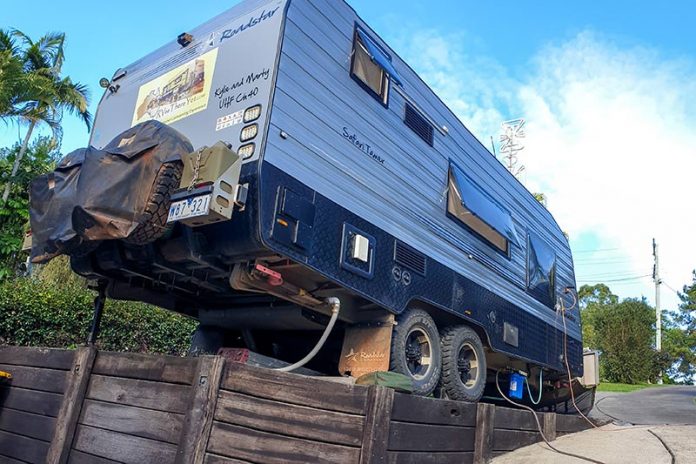The caravan and camping show season is about to get underway and, I’ll put money on it, those of you who have just bought an RV will be thinking of heading down to one or two and purchasing some accessories. It’s a good idea because you could pick up a bargain or two. But there are a number of items you should prioritise. The day will come when you will need them.
SPARE CARAVAN KEYS
When you pick up your new caravan, it’s a fair bet you’ve been handed a healthy selection of keys for all the cupboards and storage areas. You will likely be given two or three copies of each key, too.
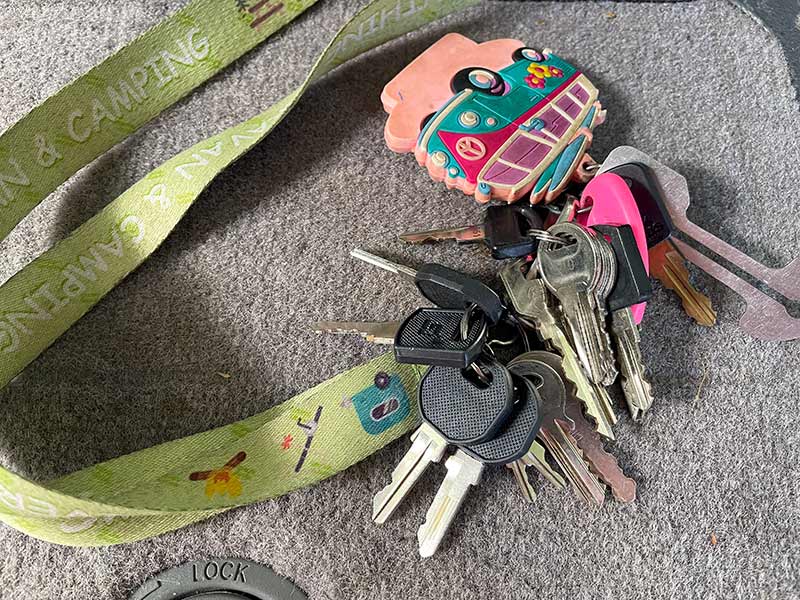
I would highly recommend you separate all those keys into individual sets and keep them separated. That way, if you lose one set or lock them inside the van, you can still access the spare set. We keep one set in the van and another set in the car. If you have enough to make a third set, perhaps leave them with a family member so they can send them up to you should you loose both sets. Don’t laugh. It has happened.
MANUALS
Your caravan will, no doubt, be fitted with every modern accessory, such as a microwave, air-conditioner, cooktop, radio and TV. Most people can work out how to use these as they are very similar to the ones they use at home.
But there are other items that you may have no idea how to operate. The battery management system, solar chargers, inverters, hot water system, fridge… the list goes on. If you’ve never had a caravan before, many of these items will be completely unknown to you and you will need to know how they operate.
Your manufacturer should have included all the manuals you need. Take them with you and store them in a handy place so you can access them at a moment’s notice. We have downloaded ours from the internet and stored on one of our notepads, which saves a bit of space.
A HEAD TORCH
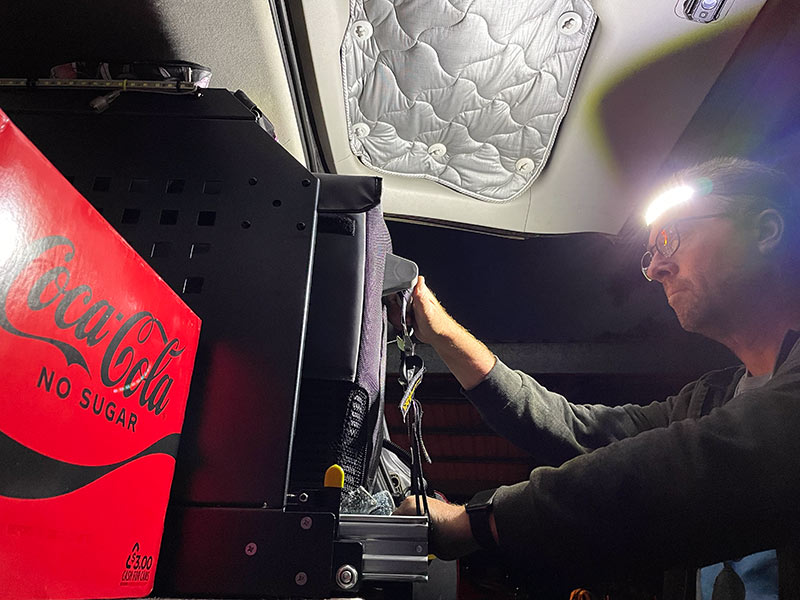
Your caravan may be festooned with LED lights inside and out but, trust me, there will be no lights in the places where things tend to go wrong. Under the van, inside the battery storage areas, and even just walking around a campground or caravan park at night, you’re going to need a torch at some point. A head torch will allow you to have your hands free to do those emergency repairs that inevitably happen at night!
BASIC TOOL KIT
Caravans are homes on wheels and regardless of how well they are built, you can bet that you will need to be making emergency repairs, especially if you want to get adventurous and head offroad.
You don’t need to take your entire garage with you but having a decent selection of basic tools will allow you to make most minor repairs. Have a mix of small and large screwdrivers, sockets and spanners. Make sure you have one large enough for your towball nut. Pliers, wire cutters and vice grips will also come in handy.
ELECTRICAL REPAIR KIT
Having a basic knowledge of 12V electrical systems will be extremely handy, especially with modern RVs. Carrying a basic multi-meter and knowing how to use it will allow you to diagnose most electrical faults. Having a set of spare fuses, a roll of hook-up wire and a crimping set will allow you to make basic repairs to any damaged wiring.
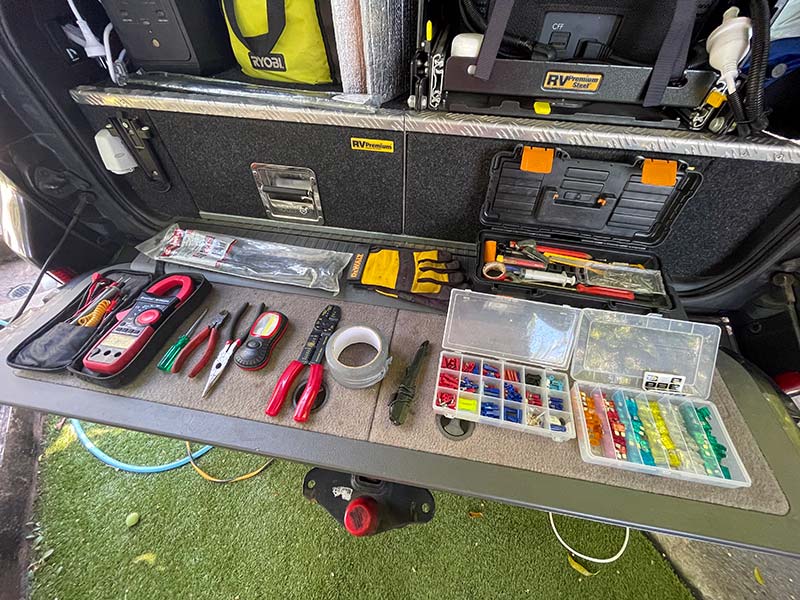
Trailer plugs are a constant source of trouble. Carrying a can of contact cleaner and silicone lubricant will enable you to clean the plugs and ensure they work reliably. Oh, and don’t forget the all-important zip-ties and electrical tape.
SERVICE EXTENSIONS
You may have been given a basic starter kit with your new van. It will have a 15A 240V extension cable, a drinking water hose and a grey water hose. These will be good but there will be times when they will not be long enough.
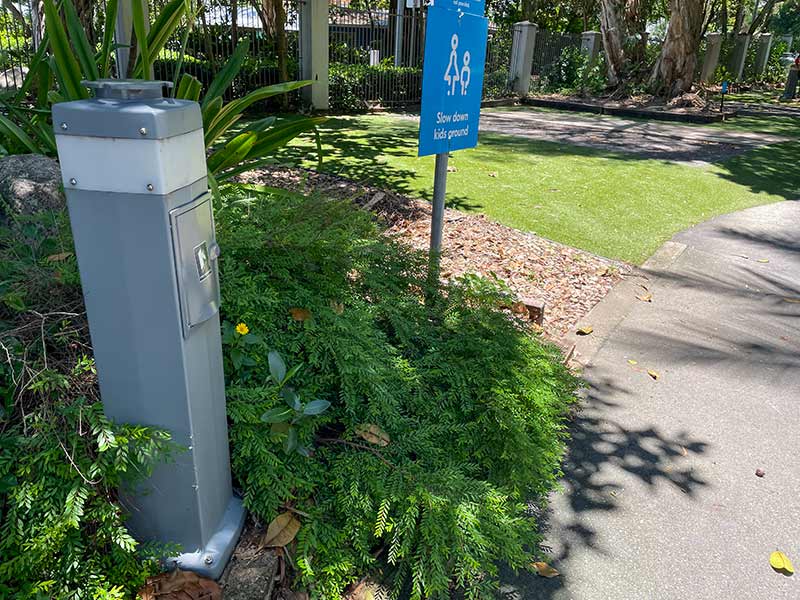
Try to carry enough extensions of each to reach a total of 25-30m for both electricity and water. A 15-20m grey water hose should be enough. Also, keep a spare set of hose connections as you’re bound to leave a set behind from time to time.
EMERGENCY COMMUNICATIONS
Everyone has a mobile phone and they are fantastic, especially for emergency communications, as long as you’re in a mobile phone coverage area. Unless you’re driving up and down the eastern seaboard along the major motorways, you will be amazed at how much of the country has no mobile phone service.
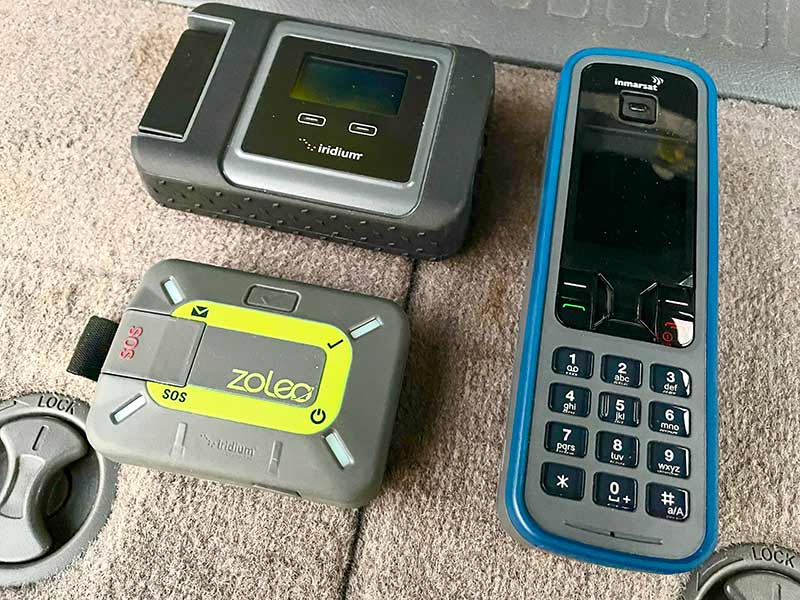
A text-based satellite communicator such as a ZOLEO will enable you to keep in contact with family and friends using text-based messaging. It will also allow you to summon the emergency services should the proverbial hit the fan. They are cheap to buy and have very reasonable service plans.
TYRE PRESSURE MONITOR
Getting a flat tyre on your car is bad enough but getting a flat tyre or blowout when towing can lead to a serious accident.
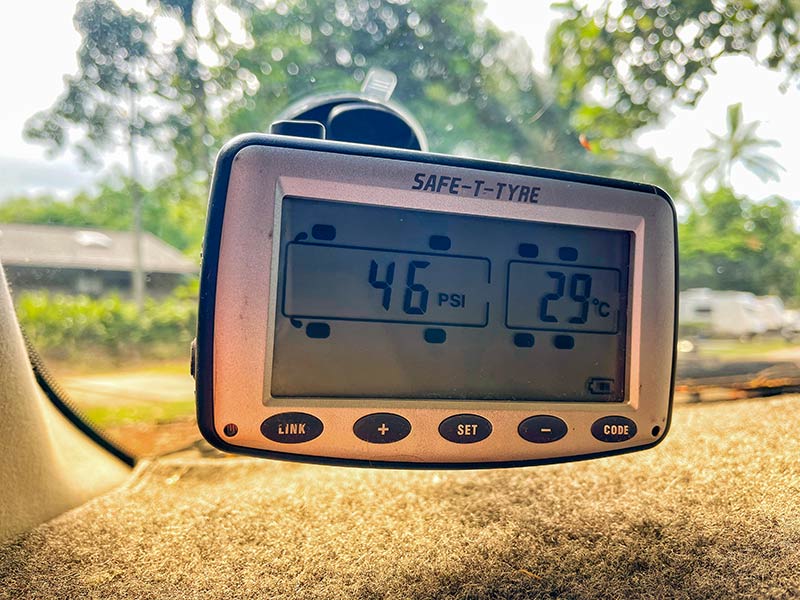
Many owners do not maintain the correct tyre pressure in their rigs and would be blissfully unaware of the dangers this poses. Fitting a quality tyre pressure monitoring system is a must, in my opinion. Under-inflated tyres will heat up and weaken the tyre. The sensors in the tyres will alert you to excessive heat as well as low pressure, allowing you to pull over and make repairs before the tyre blows out.
RAMPS, CHOCKS AND BLOCKS
I’ve been touring the country for around 25 years and, in that time, I reckon I could count on one hand the number of sites I’ve parked on that are totally level. Even the best caravan park will have sites that are not level.
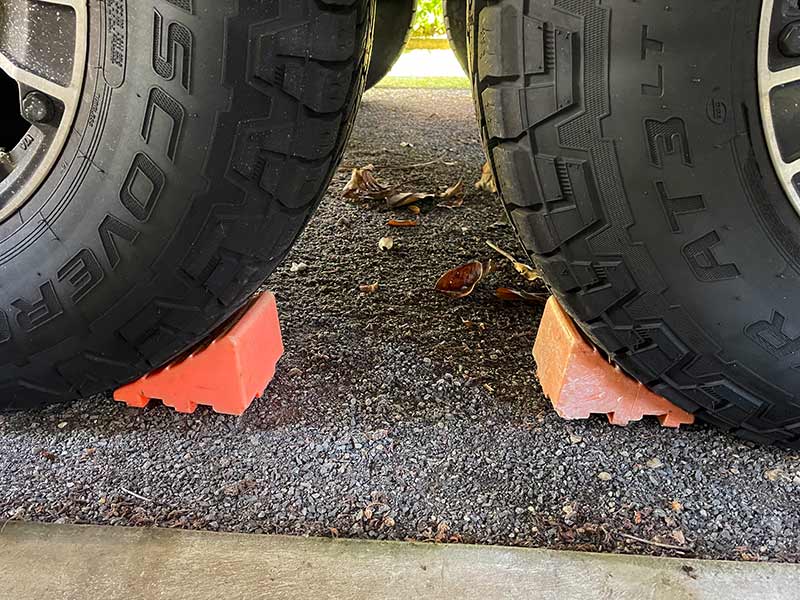
Ramps enable you to level the van side to side. Never rely on your handbrake to stop your van from rolling away. Always use wheel chocks on both sides of the van.
Having a few small blocks of wood can make setting up your stabiliser legs a lot easier and keep them out of any mud or water on the ground.
FIRST AID KIT
You would think that carrying a first aid kit would be something that every traveller would not need reminding but, the truth is, many don’t. And even if they do have one, they would have little idea what to do with it in the event of an emergency.
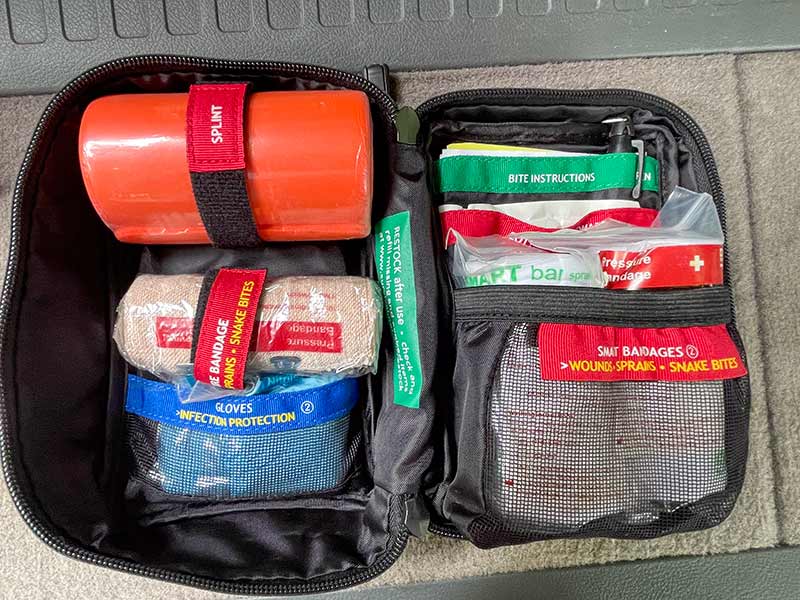
You don’t have to have a large kit. A basic one will be sufficient to deal with most minor emergencies. One of the best to carry is a snake bite kit. It has all the items you need to treat a snake bite until emergency care arrives. This includes complete instructions on how to treat a bite using the kit. Many of the items have dual uses and can be used for treating other injuries.
SUMMING UP
This is by no means an exhaustive list and I’m sure many readers are screaming that I have forgotten to include something important. That’s fine and I encourage you to write in and let us know if there are any items you think should be standard equipment for RVers.
One thing I do encourage you all to do, whether you’re experienced or new to the RV lifestyle, is to make a checklist of all the gear you want and go through the list before each journey. That way you can tailor it to suit you and your needs. Safe travels.
What else should be on this list? Let us know at info@gorv.com.au


